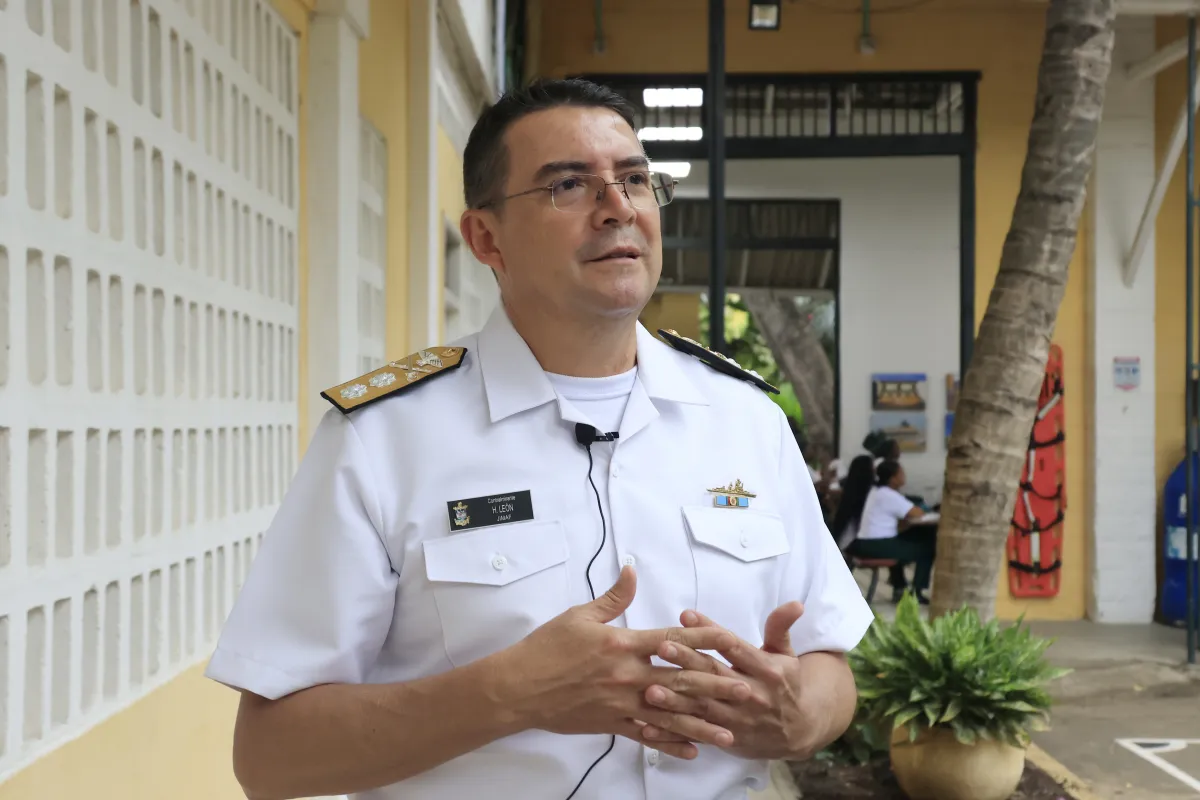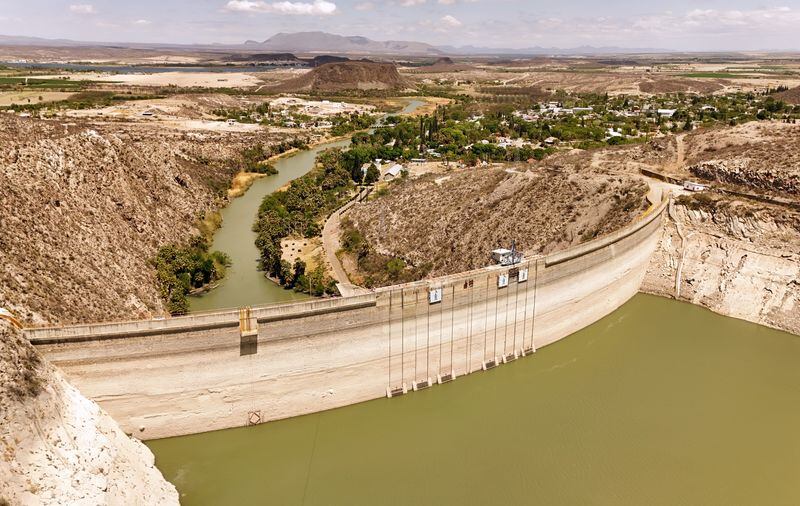International
Investigation of the San José galleon, the great scientific challenge that Colombia embarks on

Colombia embarked on one of the greatest scientific challenges in its history: the investigation of the Spanish galleon San José, sunk by English privateers off the coast of Cartagena de Indias in the 18th century and found in 2015 at a depth of more than 600 meters.
The authorities began this work with great enthusiasm, for which different institutions were articulated such as the Ministry of Cultures, the Navy and the Colombian Institute of Anthropology and History (Icanh).
“Associated with archaeology, culture and heritage, it is the first time we have made such a great effort and in this Government, particularly, to believe in the institutions and in the ability we have to do something to show the world. It is a special challenge,” the head of Maritime and River Interests of the Colombian Navy, Rear Admiral Hermann León, told EFE.
That institution put at the service of this purpose the ship ARC Caribe and all its technological capacity to “be able to go down to 600 meters deep” to observe the wreck, a task to which only Colombian specialists will dedicate themselves.
For the investigation, which will be of six phases, the Government of Colombia has also already made a decision that will make its work easier: to declare as ‘Protected Archaeological Area of the Nation’ the area where the galleon is, whose coordinates are secret to prevent treasure hunters from reaching there that can steal what was in the San José.
“This is the first protected archaeological area of Colombia in the underwater space, it is the first in America at this depth. Colombia is doing a research project as it has not been seen before under the universal principles of heritage protection and they must be assured that this is a scientific project to bring the best of that knowledge to Colombians,” the Rear Admiral added.
The San José, built in 1698 in Guipúzcoa (Spain) and belonging to the Spanish Navy, was sunk on June 8, 1708 during an attack by a fleet of English privateers when it was on its way to Cartagena de Indias loaded, according to chronicles of the time, with about 11 million coins of eight shields in gold and silver that it had collected at the Portobelo fair (Panama).
Spain, based on the rules of the United Nations Educational, Scientific and Cultural Organization (UNESCO), claims the ownership of the galleon for being “a state ship,” with its flag.
The Colombian Government, which declared the San José “asset of submerged cultural interest,” does not rule out collaboration with that country to treat the wrech as a shared heritage.
The director of the Icanh, Alhena Caicedo, explained to EFE that the investigation of the galleon is the result of “an intention to transform what the history of Colombia implies, to transform the assessment of the archaeological heritage and to give the San José galleon a sense of national identity.”
“The idea is to remove that somewhat mythological nuance that has made it a rather controversial treasure, in which people are trying to see if there is gold, if there is silver, if there are precious metals and not if there is an archaeological text that can give us very interesting answers about what the history of Colombia and the Caribbean has been,” Caicedo said.
For that reason, the focus is on protecting the archaeological heritage, on “guaranteeing a cultural value” for Colombia in order to show a more local than European story.
For that purpose, the director of Icanh explained, the research takes into account the voices of different actors, ranging from indigenous people who claim their rights over the spit to academics who are experts in heritage issues.
“We want to guarantee through this high-level scientific research that there are multiple voices, multiple ways of thinking about history and memory, multiple stories, if you want, that allow us to complicate the readings that we sometimes have about the past in order to have a much more interesting future reference,” he added.
International
Police investigate deaths of Rob Reiner and wife as apparent homicide

The Los Angeles Police Department (LAPD) is investigating the deaths of Hollywood actor and filmmaker Rob Reinerand his wife as an “apparent homicide,” amid a wave of tributes to the director of classics such as When Harry Met Sally.
According to U.S. media reports on Sunday, Rob Reiner and Michele Singer Reiner were found dead at their Los Angeles mansion with what appeared to be stab wounds.
Several political figures shared messages of condolence following the reported deaths of the director of A Few Good Menand his wife.
While the LAPD did not officially confirm the identities of the victims, it stated that homicide detectives were dispatched to the Reiner residence.
“At this time, no additional details are available and the investigation into an apparent homicide is ongoing,” the Los Angeles Police Department said in a statement posted on social media.
LAPD Deputy Chief Alan Hamilton told reporters that no arrests have been made and that no individuals are currently being questioned as suspects.
“I’m not going to confirm whether anyone is being questioned at this moment or not. We are going to try to speak with as many family members as we can,” Hamilton said.
CNN reported that a family spokesperson confirmed the deaths of Reiner and his wife.
California Governor Gavin Newsom, former U.S. President Barack Obama, and former Vice President Kamala Harrisissued statements expressing their condolences.
International
U.S. and Mexico Reach Deal to Address Water Deficit Under 1944 Treaty

The United States and Mexico have reached an agreement to comply with current water obligations affecting U.S. farmers and ranchers and for Mexico to cover its water deficit to Texas under the 1944 Water Treaty, the U.S. Department of Agriculture said in a statement.
The department уточified that the agreement applies to both the current cycle and the water deficit from the previous cycle.
On Monday, U.S. President Donald Trump accused Mexico of failing to comply with the water-sharing treaty between the two countries, which requires the United States to deliver 1.85 billion cubic meters of water from the Colorado River, while Mexico must supply 432 million cubic meters from the Rio Grande.
Mexico is behind on its commitments. According to Washington, the country has accumulated a deficit of more than one billion cubic meters of water over the past five years.
“This violation is severely harming our beautiful crops and our livestock in Texas,” Trump wrote on Monday.
The Department of Agriculture said on Friday that Mexico had agreed to supply 250 million cubic meters of water starting next week and to work toward closing the shortfall.
Agriculture Secretary Brooke Rollins, quoted in the statement, said Mexico delivered more water in a single year than it had over the previous four years combined.
Trump has said that if Mexico continues to fall short of its obligations, the United States reserves the right to impose 5% tariffs on imported Mexican products.
Mexico’s Deputy Foreign Minister for North America, Roberto Velasco, said that a severe drought in 2022 and 2023prevented the country from meeting its commitments.
International
Several people shot in attack on Brown University campus

Several people were shot on Saturday in an attack on the campus of Brown University, in the northeastern United States, local police reported.
“Shelter in place and avoid the area until further notice,” the Providence Police Department urged in a post on X. Brown University is located in Providence, the capital of the state of Rhode Island.
U.S. President Donald Trump said on his social media platform Truth Social that he had been briefed on the situation and that the FBI was on the scene.
At 5:52 p.m. local time (11:52 p.m. GMT), Brown University said the situation was still “ongoing” and instructed students to remain sheltered until further notice.
After initially stating that the suspect had been taken into custody, Trump later posted a second message clarifying that local police had walked back that information. “The suspect has NOT been apprehended,” the U.S. president said.
-

 International4 days ago
International4 days agoWashington declares State of Emergency as atmospheric river brings severe flooding
-

 International4 days ago
International4 days agoU.S. to require five-year social media history from tourists under Visa Waiver Program
-

 Central America3 days ago
Central America3 days agoHonduras election crisis deepens as CNE president denounces intimidation attempts
-

 International3 days ago
International3 days agoCuba battles out-of-control dengue and chikungunya epidemic as death toll rises to 44
-

 Central America4 days ago
Central America4 days agoOAS and EU urge honduran political actors to respect vote results and avoid unrest
-

 International3 days ago
International3 days agoColombia says it would not reject Maduro asylum request as regional tensions escalate
-

 International2 days ago
International2 days agoSeveral people shot in attack on Brown University campus
-

 International3 days ago
International3 days agoEcuador on track for record violence as homicides hit highest level in Latin America again
-

 International4 days ago
International4 days agoSix ecuadorian soldiers jailed pending trial for alleged extrajudicial execution
-

 International2 days ago
International2 days agoU.S. and Mexico Reach Deal to Address Water Deficit Under 1944 Treaty
-

 Central America16 hours ago
Central America16 hours agoPanama seizes over three tons of drugs hidden in Caribbean port container
-

 International4 hours ago
International4 hours agoPolice investigate deaths of Rob Reiner and wife as apparent homicide
-

 Central America4 hours ago
Central America4 hours agoOAS urges swift recount in Honduras as election results remain uncertain


























